I’m not a human rights activist, I’m not a lawyer, I’m not a journalist. But what I can do — that many of them won’t do — is that I can listen to your story from beginning to end, and I’ll do it with patience and I’ll do it with compassion.
Lynn Nottage was born in New York City and grew up in the neighborhood known as Boerum Hill, in the borough of Brooklyn. Her mother was a school teacher and eventually a school principal; her father was a psychologist. Both of her parents were consciously engaged in the ongoing movement for social justice and the full civil rights of African Americans. Along with her friends Eugenia Clarke (the wife of African American historian John Henrik Clarke), and Betty Shabazz (the widow of Malcolm X), Mrs. Nottage started a weekend school to teach local children African and African American history and culture.

The Nottages encouraged their daughter to take an interest in the performing arts and all forms of cultural expression. Young Lynn played piano and flute and attended the Fiorello H. LaGuardia High School of Music & Art in its old location on 135th St. in Harlem. Lynn Nottage’s parents often took her to the theater to see the works of African American playwrights and actors, and she was naturally drawn to the theater as a means of self-expression. In high school, she wrote her first play, The Dark Side of Verona, a story of black actors performing Shakespeare’s plays in the Deep South.
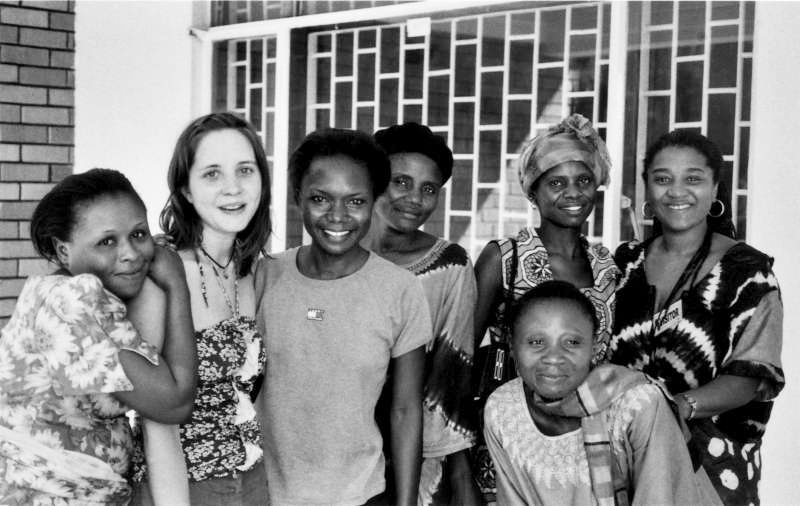
After entering her play in a national competition for young playwrights, she was chosen as one of four high school students to study writing for the musical theater, in a workshop mentored by America’s undisputed master of the form, Stephen Sondheim. Despite her promising start as a playwright and composer, Nottage won a scholarship to Brown University as a pre-med student. She entertained thoughts of becoming a physician and writing plays on the side, but soon found that her talents for writing were significantly greater than any aptitude for studying medicine. She graduated with a degree in English and African American studies and earned a master’s degree at Yale School of Drama. On completing her studies, Nottage moved to New York City, where she worked in the press office of Amnesty International for four years while writing plays in her spare time.

Gradually, her work attracted the interest of theaters around the country. In 1993, her short play Poof! was presented at the Actors Theatre of Louisville. Her political satire Por’Knockers premiered Off-Broadway in 1995. The following year Crumbs from the Table of Joy premiered at South Coast Repertory in Costa Mesa, California.
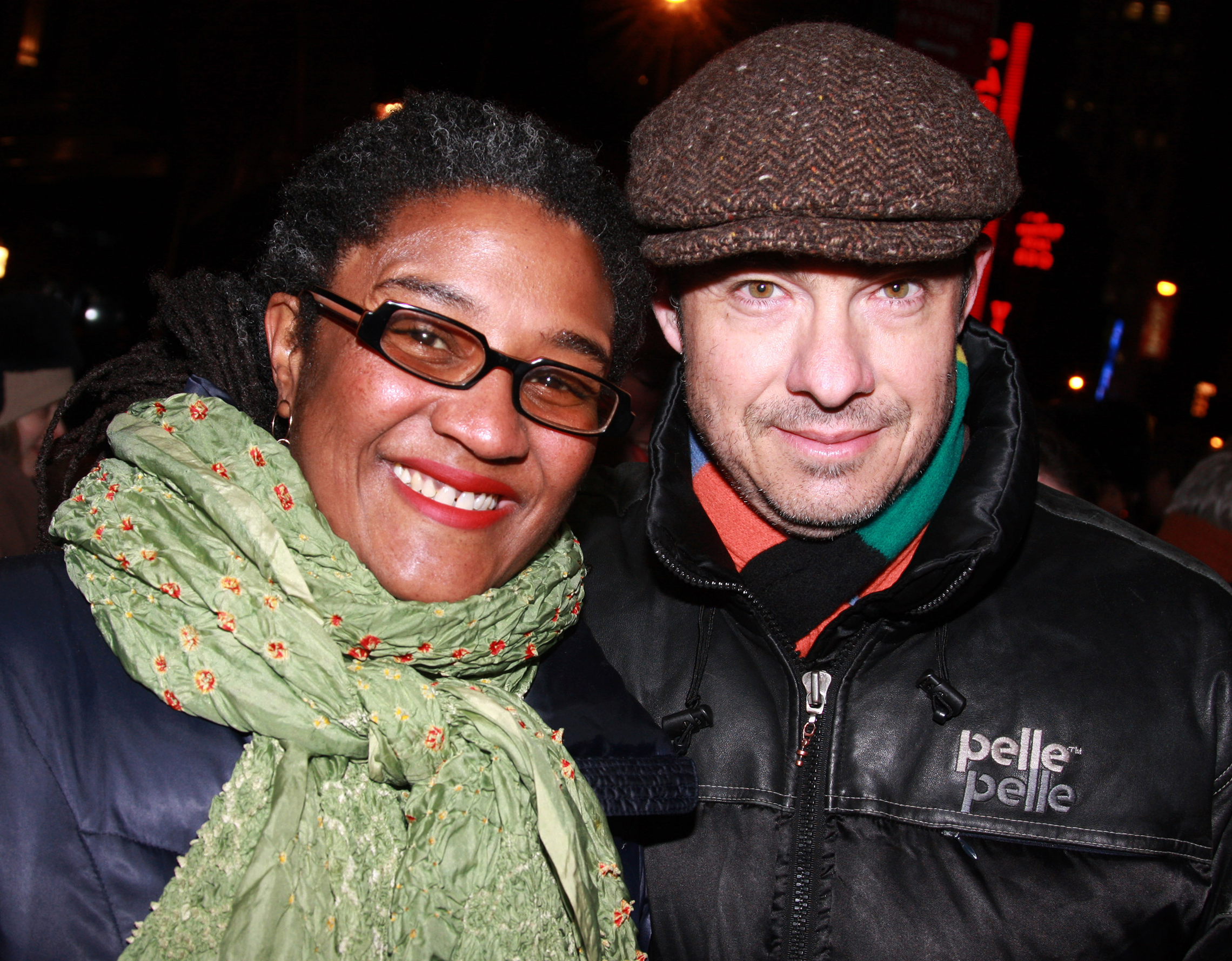
Her play Mud, River, Stone portrayed the misadventures of an African-American couple on vacation in Africa, forced to confront the realities of extreme poverty and political violence. First produced on tour by The Acting Company, it received its New York premiere at Playwrights Horizon in 1997. Nottage was awarded a Rockefeller Grant on the basis of her play Las Meninas. First performed at San José Rep in 2002, it explores the legend of Queen Maria Theresa, consort of France’s King Louis XIV, and her love affair with one of her servants, an African dwarf.

As the 21st century began, Lynn Nottage’s plays were reaching a wider audience. Las Meninas and her earlier plays were published in book form in the collection Crumbs From the Table of Joy and Other Plays. Her early play Poof! was broadcast on public television with a cast that featured Rosie Perez and Viola Davis. It has since been recorded as a radio production starring Audra McDonald.
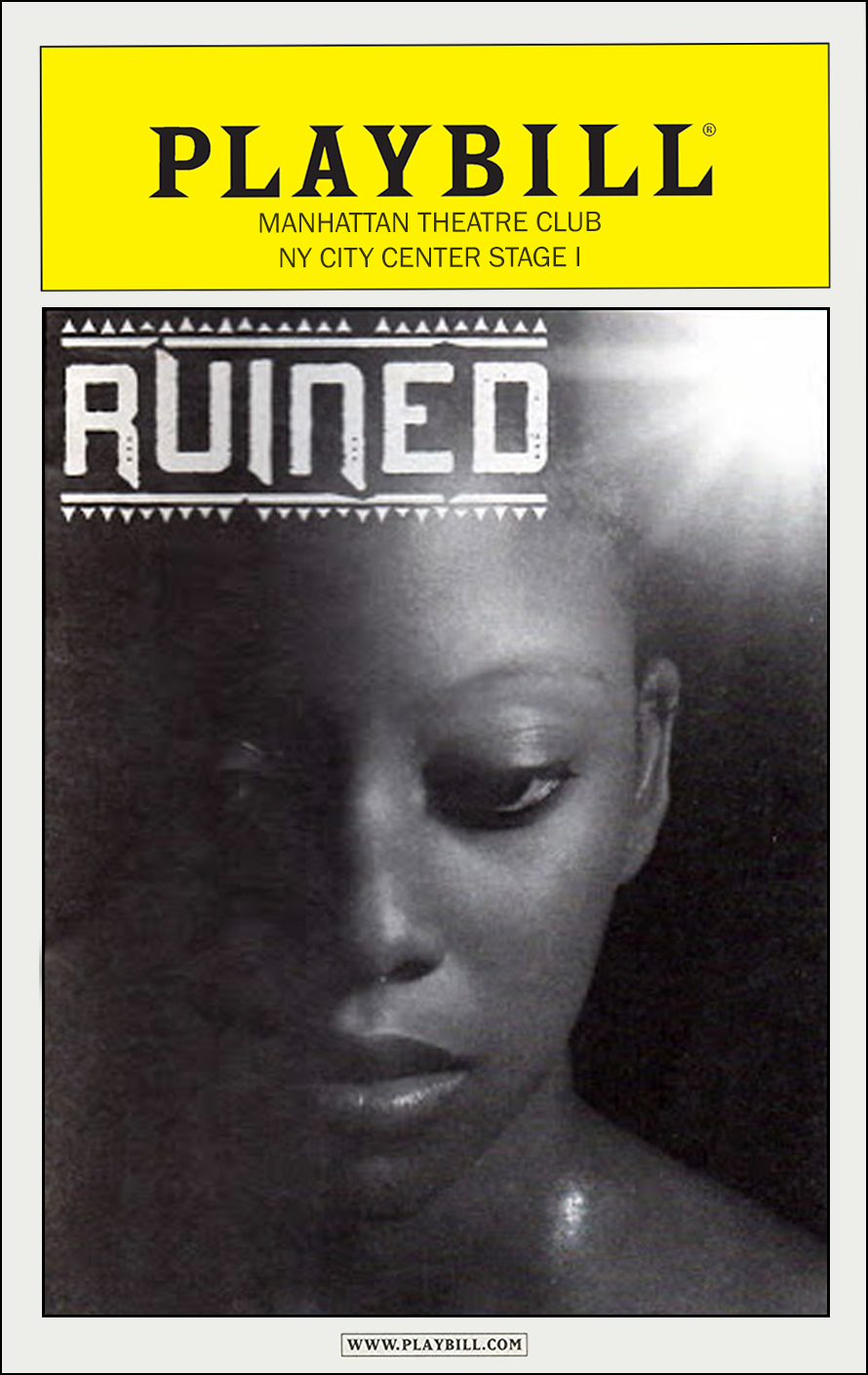
A turning point in Nottage’s career came with the first productions of her play Intimate Apparel, an imaginative reconstruction of a life like that of her grandmother as a young garment worker in early 20th century New York. Co-commissioned by Baltimore’s Center Stage and South Coast Repertory, it was produced at both theaters in 2003, with the latter production directed by Kate Whoriskey, who would become a frequent collaborator with Nottage.

Intimate Apparel reached New York the following year in a production starring Viola Davis at Roundabout Theatre Company. It has since become one of the most produced plays in America. Nottage followed Intimate Apparel with Fabulation, Or the Re-Education of Udine, a lighter work in which she explored the life of a character much like the heroine of Intimate Apparel, living 100 years later in contemporary New York. The play received its world premiere at New York’s Playwrights Horizon in 2004, in a production starring Charlayne Woodard, directed by Kate Whoriskey.
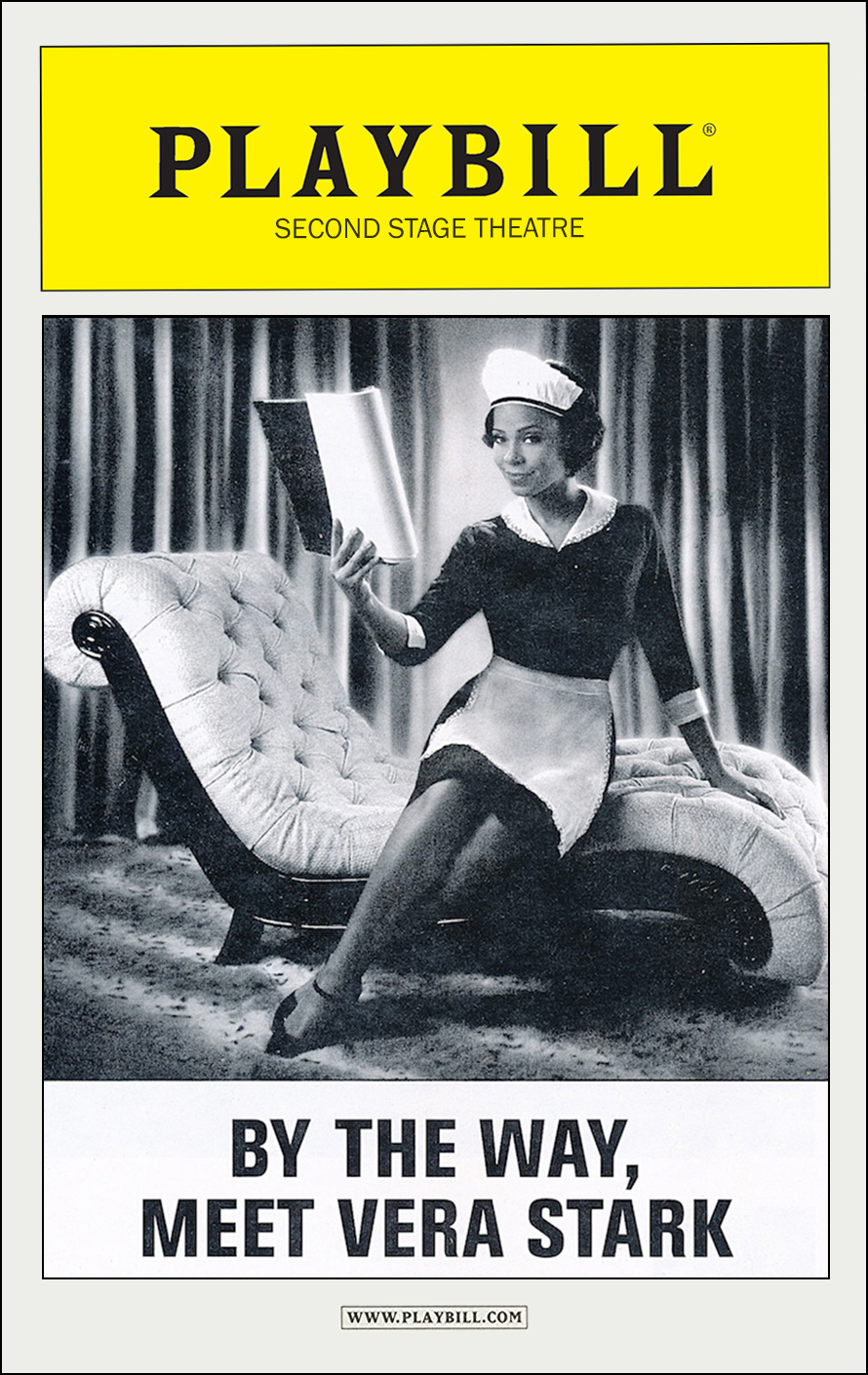
Eager to continue her collaboration with Whoriskey, Nottage contemplated a contemporary adaptation of Mother Courage and Her Children. The modern classic by German playwright Bertolt Brecht follows the struggle of a poor woman and her family to survive the Thirty Years’ War. Searching for a contemporary analogue to the war that shattered Europe in the 17th century, Nottage and Whoriskey turned their eyes to East Africa. What began as a civil war in the Democratic Republic of Congo (formerly known as Zaire) spread to bordering countries, ultimately involving nine nations and taking more lives than any conflict since World War II. After interviewing scores of women in the refugee camps of Uganda, Nottage concluded that a mere adaptation of an existing play could not address the tragedy of the Congo, where noncombatant women were specifically targeted and rape was deliberately employed as a weapon of war.
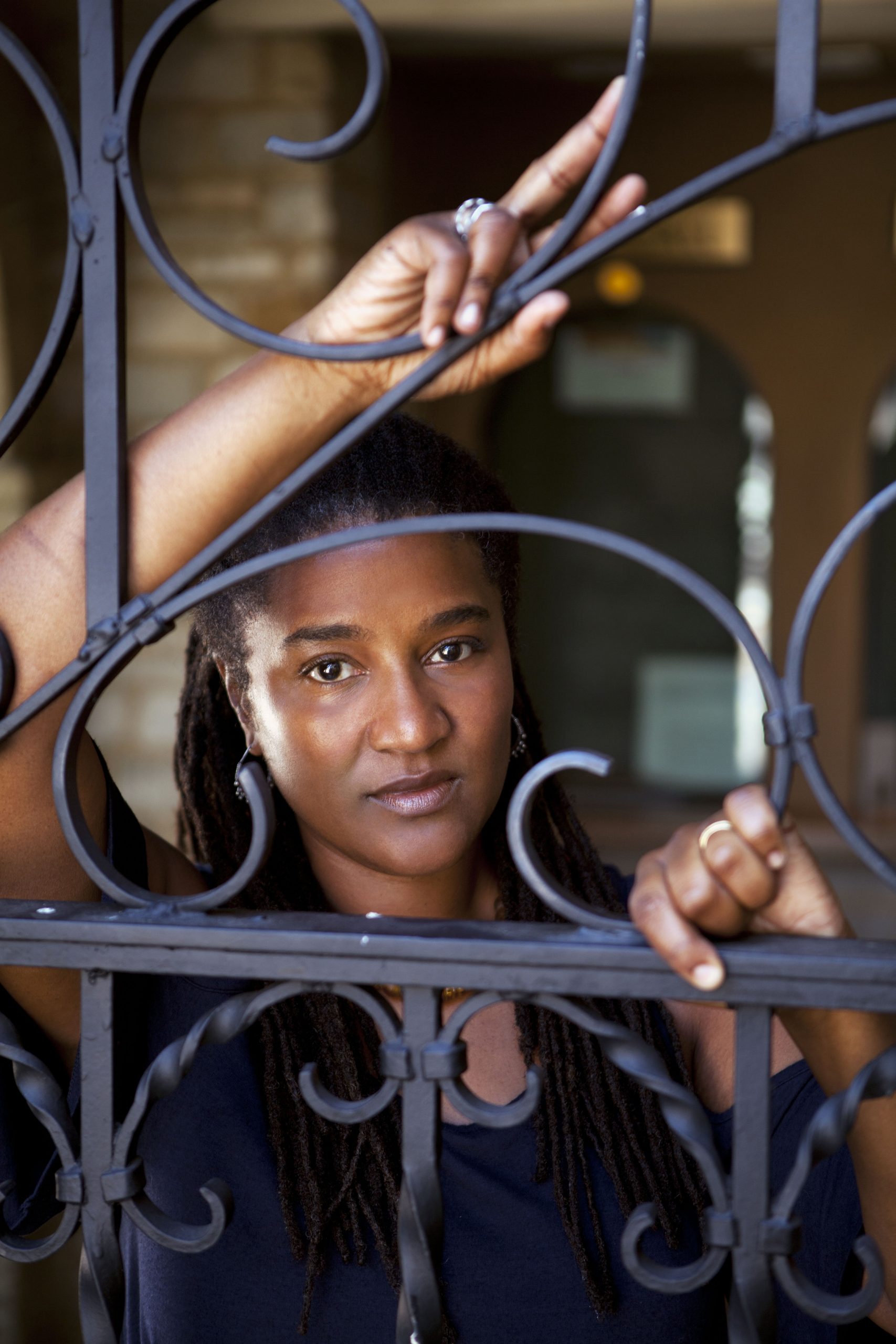
Nottage made three separate trips to East Africa to conduct research for the play that became Ruined. Set in a small mining town at the edge of the rainforest, the play focuses on “Mama Nadi,” a shrewd businesswoman who both protects and exploits the women who seek refuge under her roof. Ruined had its world premiere at the Goodman Theatre in Chicago in 2007 and transferred to Off-Broadway at the Manhattan Theatre Club early in 2009. Ruined brought the tragedy of the Congo to American theatergoers as no news story had been able to do. Nottage’s achievement was recognized with the 2009 Pulitzer Prize for Drama.

She followed the intense drama of Ruined with a satirical comedy. By the Way, Meet Vera Stark recounts the fictional life of a young African American woman, who begins as a maid for a Hollywood film star and eventually becomes a film actress herself.

The financial crisis of 2009 and the deepening inequality it exposed made a deep impression on Lynn Nottage. When she received a commission from Oregon Shakespeare Festival to address an American historical topic, she chose the decline of the industrial heartland. Working again with Kate Whoriskey, she traveled to Reading, Pennsylvania, which a 2011 survey had identified as “the poorest small city” in the nation, devastated by its loss of industrial jobs. Once again, she conducted lengthy interviews with the people whose lived experience would inform her work. The play that she wrote, as a result, Sweat, premiered at the Shakespeare Festival in Ashland, Oregon in 2015, and was next performed at Arena Stage in Washington, D.C. The New York production opened at the Public Theater in 2016 and transferred to a Broadway theater (the former television studio and discotheque Studio 54) the following year. All three productions were directed by Whoriskey. The play won the 2017 Pulitzer Prize for Drama, an unprecedented second win for a female playwright.

Nottage was concerned that her work reach the people most directly involved with the play’s subject. Working with the Public Theater, she arranged for the play to be performed, free of charge, in Reading and in 17 other depressed industrial communities in the Midwest, creating opportunities for public discussion after each performance. Returning to the play’s scene, she created a massive multimedia installation, This Is Reading, to bring together sectors of the community long divided by race, class, and other perceived cultural differences. Nottage and her collaborators filled a derelict train station with giant projections, recorded interviews, and aerial photography to give the people of Reading a new perspective on their town and one another. By overhauling an abandoned structure and bringing an audience to a neglected downtown neighborhood, the project stimulated interest in the area’s economic revival.
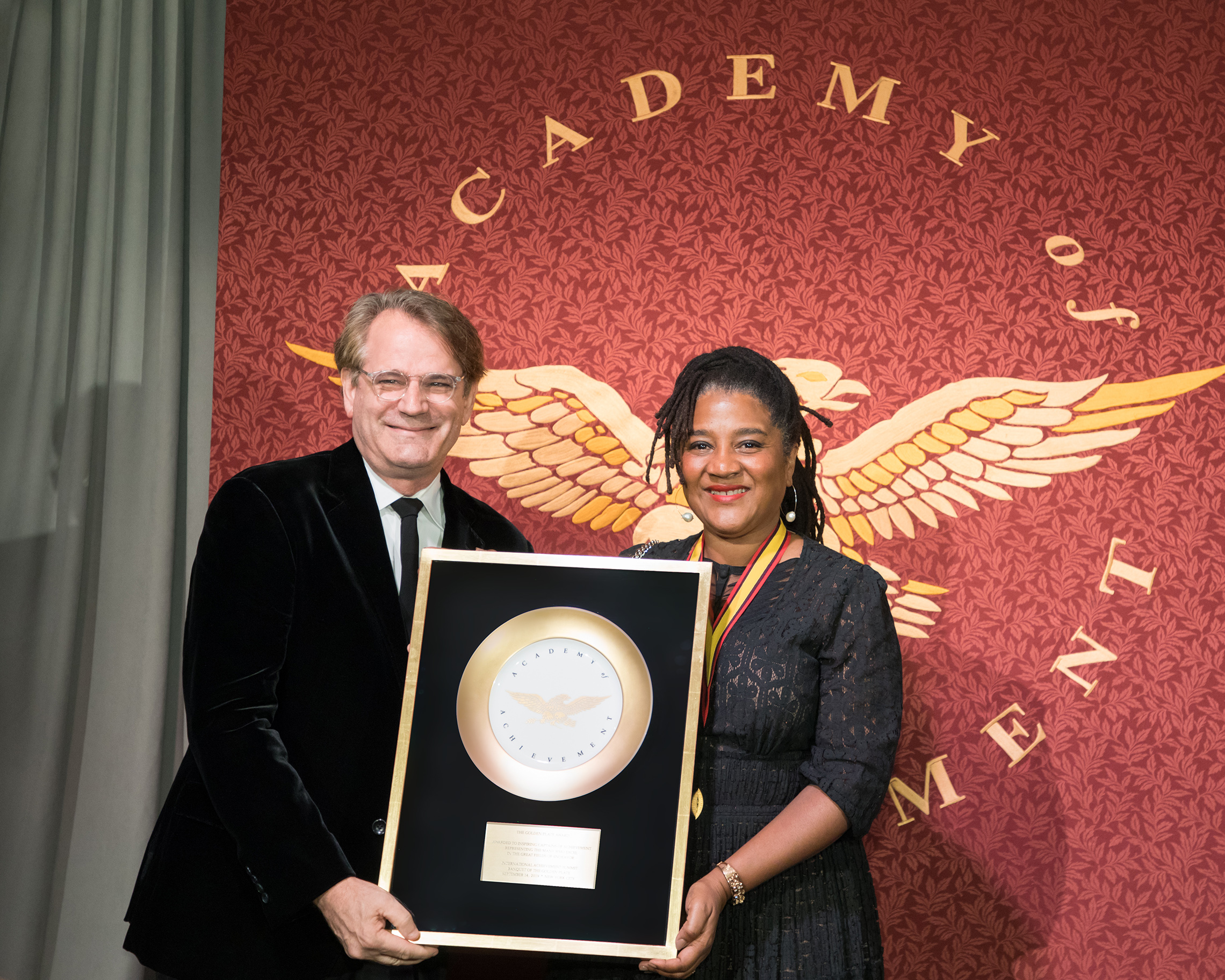
Her play Mlima’s Tale premiered The Public Theater in 2018; the play concerns an elephant trapped in the illegal ivory trade. Nottage wrote the script for the 2019 musical adaptation of Sue Monk Kidd’s novel The Secret Life of Bees. That same year, her play, Floyd — set on election night, 2024 — premiered at the Guthrie Theater in Minneapolis.

Nottage is married to Emmy Award-winning filmmaker Tony Gerber. Nottage and Gerber are the co-founders of the production company Market Road Films, producers of over a dozen documentary films. Nottage has also developed projects for HBO, Showtime, and Harpo Productions, and served as a writer and producer for the first season of Spike Lee’s television series She’s Gotta Have It. Nottage and Gerber have two children and live in New York City.
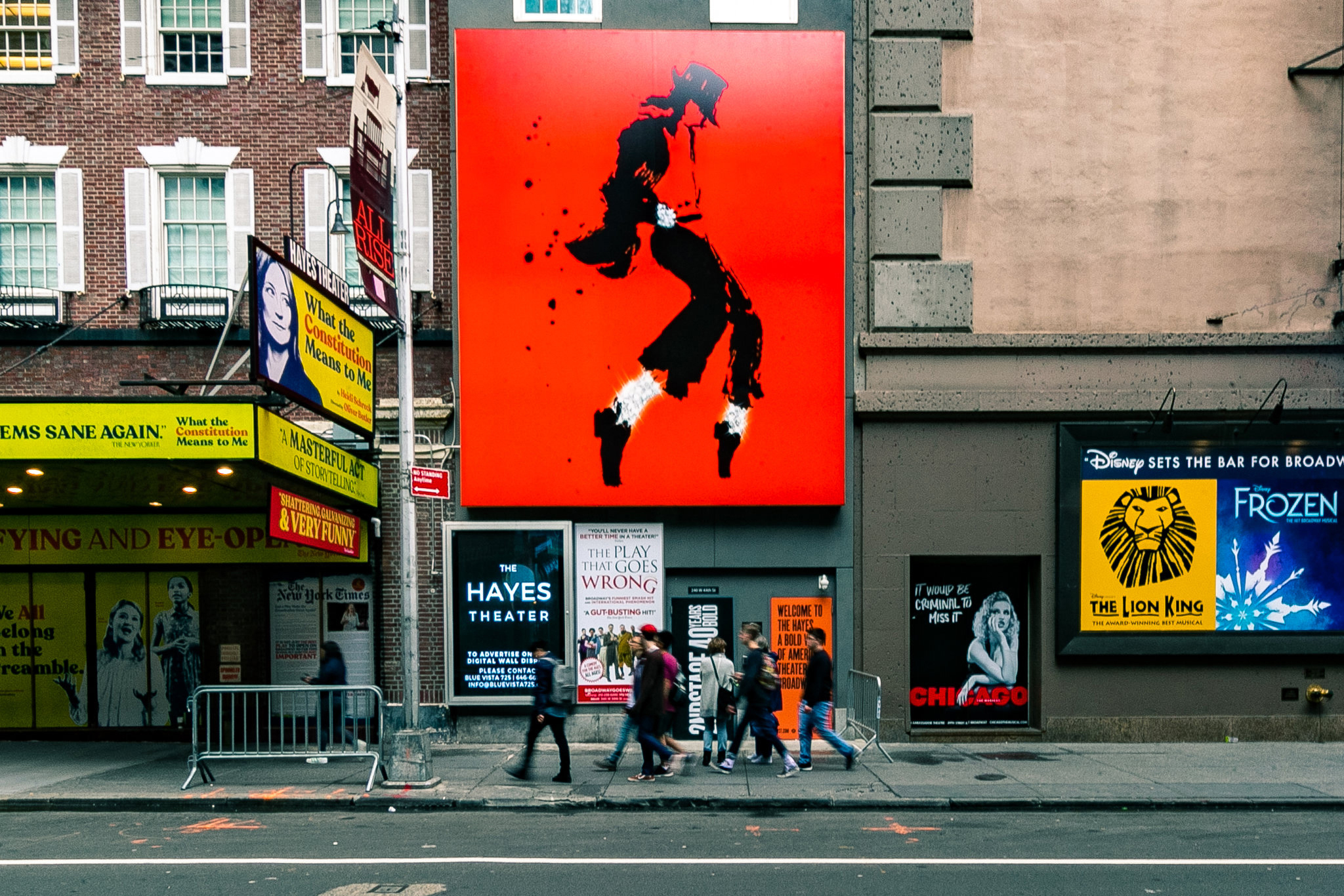
Lynn Nottage has collaborated with composer Ricky Ian Gordon to create an opera based on her play Intimate Apparel. Commissioned by New York’s Metropolitan Opera and Lincoln Center Theater, Intimate Apparel was scheduled to open in March 2020, but the production was postponed due to the COVID-19 pandemic. Lincoln Center and the Metropolitan plan to proceed with the premiere when New York’s theaters re-open.

In November 2021, Lynn Nottage’s new play Clyde’s arrived on Broadway. Directed by Kate Whoriskey, Clyde’s is set at a busy truck stop sandwich shop that offers its formerly incarcerated kitchen staff a shot at reclaiming their lives.
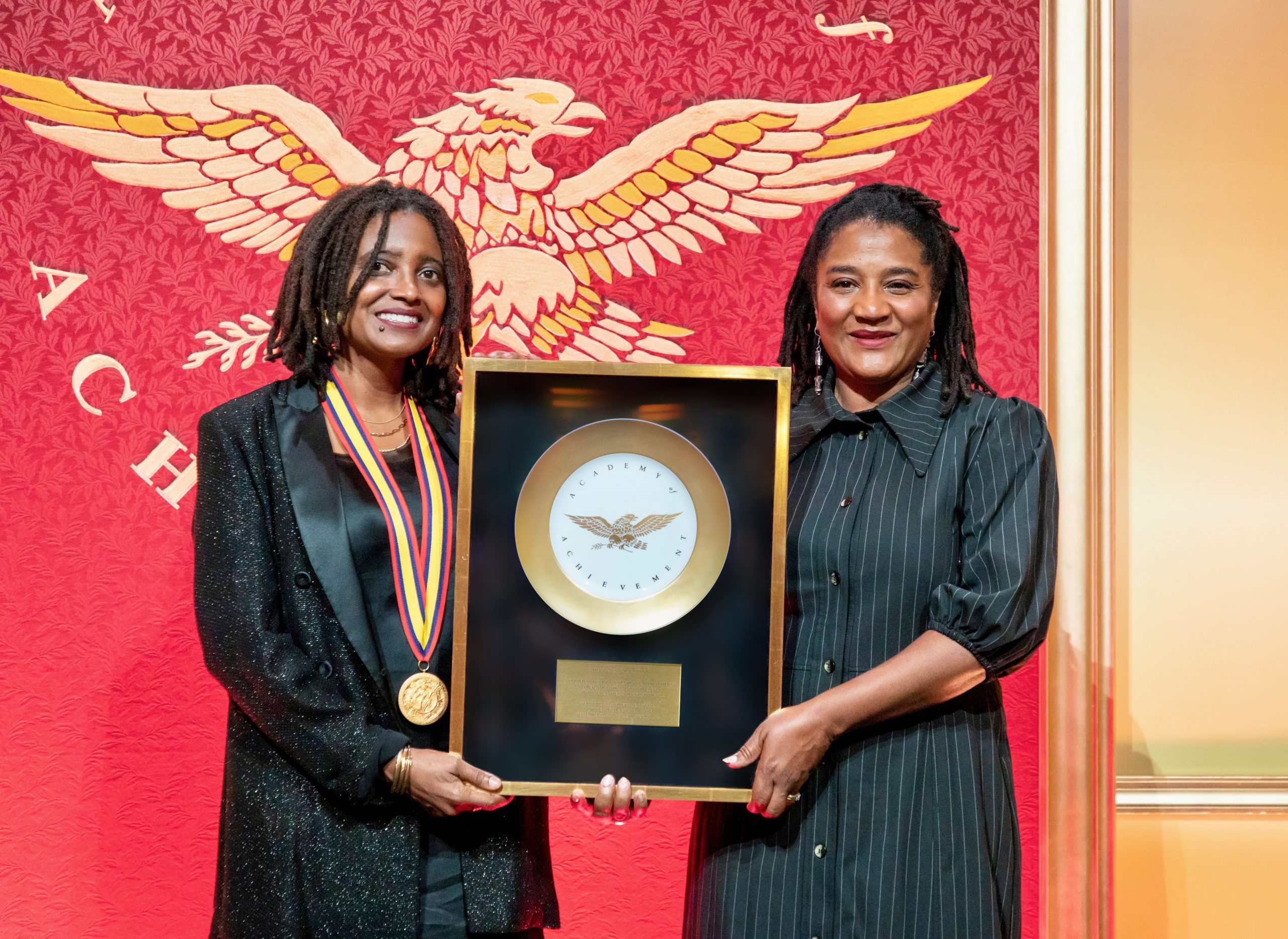
At the start of 2022, three of her works — Clyde’s, the musical MJ, and an opera adaptation of her play Intimate Apparel — were playing on New York City stages simultaneously. In May 2022, MJ was nominated for 10 Tony Awards including Best Book of a Musical and Best Musical. Clyde’s was nominated for Best Play.

The American playwright Lynn Nottage is the only woman to have won the Pulitzer Prize for Drama twice. Her plays, highlighting the struggles of people forced to the margins of society, have been produced across the United States and throughout the world.
Nottage received the 2009 Pulitzer for Ruined, which portrays Congolese women struggling to survive a civil war. She won a second time, in 2017, for Sweat, a story of steelworkers in Reading, Pennsylvania — female and male, black and white — whose friendships are tested when layoffs and union busting pit them against one another. After the play’s Broadway run, New York’s Public Theater presented Sweat for free in 18 industrial towns like the one depicted in the play.
A recipient of a MacArthur Foundation “Genius Grant,” she is continually testing new forms and new venues for her work, from film and television to site-specific installations like This Is Reading and the proposed operatic adaptation of her play Intimate Apparel. As she seeks to bring her work to a larger and more diverse public, Nottage’s plays are informed by exhaustive research and a profound respect for the human dignity of her subjects.
You were awarded the Pulitzer Prize for your drama Ruined. Could you tell us how you came to write that play?
Lynn Nottage: Ruined began as an adaptation of Bertolt Brecht’s Mother Courage. I was working at the time with my collaborator, Kate Whoriskey, and we were really interested in doing an adaptation of that particular play and began researching various wars that were going on. And the war that really fascinated me — in large part because there was some information about it — was the war that was raging on in the Democratic Republic of Congo. And the two of us decided that we were going to set the play there.
And when I began reading the newspapers, I found I couldn’t find any information about what was happening to women in war. And I said to Kate on a whim, I said, “What if we bought a ticket and we went to East Africa and interviewed women who were fleeing that war?” She was a little frightened, a little worried, but she followed me there. And you have to remember at this moment we were still very interested in doing a modern adaptation of Mother Courage. But when we sat down with women who were fleeing the war, very quickly I realized that the European male frame of the story was not going to be sufficient.
The stories that we were hearing from these women were so specific to the Democratic Republic of Congo — it was so specific to African women — that I thought, “I need a completely different paradigm in order to enter this space.” And one of the things that really resonated when I was interviewing the women is the way in which they held the word “mother” in their mouths. I always asked each woman, how would you describe “mother courage?” and they’d always take a moment where they’d stop and they’d say, “Yes, mother courage.” And in that moment I thought, “I have to somehow capture that emotion,” and capture sort of the sadness but the resilience that was inside the way in which they held that language in their mouths. And so Ruined really came out of that.

There’s a paradox in this play, in that a brothel becomes a kind of haven for women fleeing the war.
Lynn Nottage: I’m very interested as a whole in morally ambiguous characters. And at the center of Ruined is a woman named Mama Nadi who runs a brothel in the Ituri Rainforest. She at once provides refuge to women who have been victims of gender‑specific human rights abuses, but she also exploits them. So I was really interested in that conundrum of someone who is at once sort of savior and exploiter. I think that Mama Nadi would describe herself as someone who understood that in order to save these women, she had to make some compromised choices, and I was interested in that compromised choice and the complexity of that. One of the phrases that I held onto when I was interviewing these women, was “sustain the complexity of the situation.” It’s really easy for us to condemn someone like Mama Nadi without understanding the difficulty of surviving in a war like the one that was raging in the entire Ituri Rainforest. It’s really easy for us to be judgmental without understanding the complexities of what it took to survive in that situation.
In Ruined, you riveted audiences around the country with a story that the newspapers weren’t even really covering.
Lynn Nottage: The decision to get on the plane to go to East Africa really came as a result of not being able to find any information, and that anger and that frustration. When I arrived in East Africa and began interviewing women, I became even more frustrated and angry because I thought, “These stories need to be amplified. How can so many women be experiencing similar levels of exploitation and gender‑specific violence and none of us know that it’s happening?” If you remember, the war in Democratic Republic of Congo, I think by the time it ended 6.5 million people had died. It was the largest war since World War II, and half of those people who were victims were women who never picked up arms and weren’t instigators of the conflict and yet were victims.
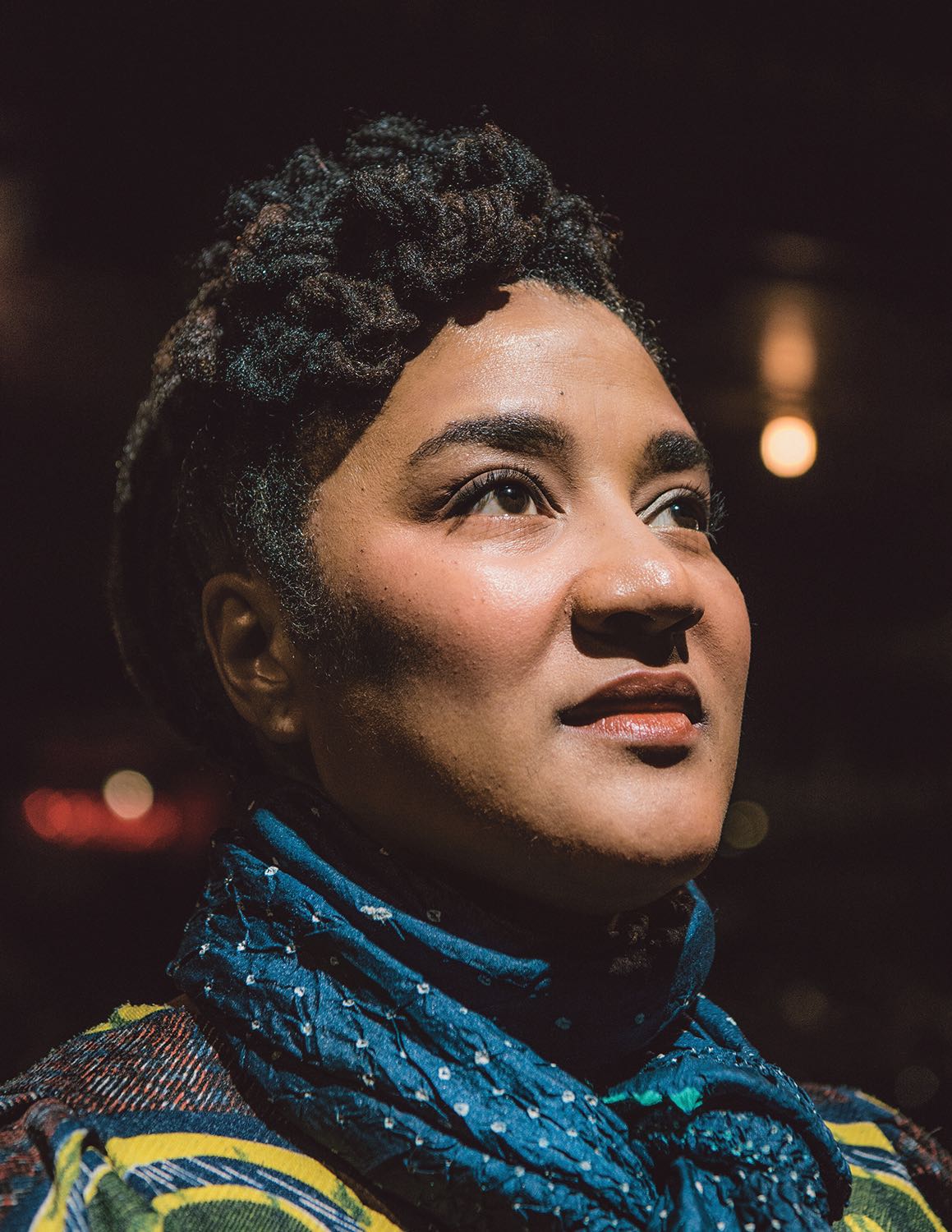
What was that like for you, to listen to these stories?
Lynn Nottage: I think back specifically to some of the stories that I heard. I remember, in fact, the very first woman who we interviewed began telling her story and I was so overwhelmed by emotion I literally felt like my heart was going to leap out of my body. And I thought, “There’s no way I’m going to continue.” But I realized that if I didn’t continue, and if I didn’t bear witness, there was a possibility that there wasn’t going to be someone else who would listen and someone else who would take the time to really invest in their stories not only being heard but their stories being told. I remember sitting down with the women, and I always began by saying, “I’m not a human rights activist, I’m not a lawyer, I’m not a journalist. But what I can do that many of them won’t do is that I can listen to your story from beginning to end and I’ll do it with patience and I’ll do it with compassion.”
Watching the play is a shattering experience. You showed a lot of courage in taking it to that point, which you knew was going to create a lot of emotion in your audience.
Lynn Nottage: After I did the initial set of interviews with women in East Africa, I recognized that my journey was not complete, and I ended up applying for a Guggenheim grant to go back and spend more time in East Africa with women fleeing gender-specific human rights abuses. And then after that I went back a third time. And the third time I went very specifically to figure out, “How do you use theater and art as a tool for healing?” Because I thought, “It’s not enough for me to tell these women’s stories, but I want to figure out how do we process the stories in a way that moves through our bodies and leads to some sort of catharsis and healing.” It was really important when I was writing Ruined that the audience take a journey, not just through the darkness, but come out at the end with a sense of optimism, and recognize the resilience in these women. I know that I took a lot of criticism when the play was originally produced that I had a happy ending. But one of the things that I remember when I was interviewing the women is how easily they could move from despair to accessing their smiles, and I thought the smiles are the things that permit them to transcend these circumstances, and I wanted the audiences to understand that as dark as the place these women were, they were able to find their resilience.
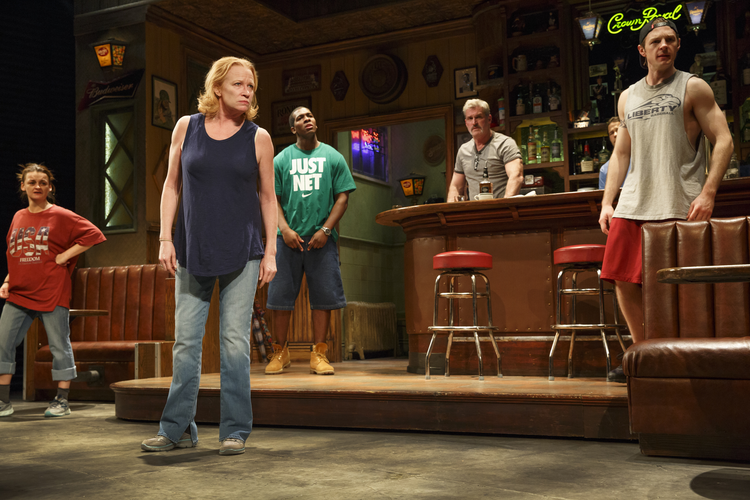
The second of your plays to win the Pulitzer Prize was Sweat, and that also involved a lot of in-person research, didn’t it? How did that come about?
For me, Sweat really came at the end of my journey with Ruined. It began when I was actually coming back from Chad, where I had just done a production of Ruined there, and I arrived home and I had all these emails in my email box, and one very specific email was from a neighbor of mine who was a very good friend. I opened it up that evening and I read it, and basically she was saying that she had been broke for six months, that she hadn’t been working, that she had been hiding it from her friends, and that when we saw her smiling, that smile was covering the fact that she was in deep despair. She was a mother of two. She’s someone who I can attest to always had a smile, and it broke my heart. It broke my heart that I had not recognized the extent of her suffering. I hadn’t recognized that she was someone that was in the midst of such a struggle.
The next day I called her up and I said, “What can I do to help?” and it also happened to coincide with the very first week of Occupy Wall Street. So we decided that we were going to go to Occupy Wall Street and vent our frustration. We spent about a week walking around Zuccotti Park chanting, being really angry, but at the very end I felt like nothing has happened, and I felt I need to do something much more tangible.
I want to understand how economic stagnation is really shifting the American narrative, and how someone like this friend who had solidly invested in the Horatio Alger myth, someone who had been solidly middle class, could be broadsided and find herself on the verge of being homeless.
That led me on a journey to Reading, Pennsylvania, which at the time was the poorest city of its size in America. My assumption is that I was going to go down to this city, interview people for one week, and it ended up being a two-year journey in which I went almost every single week to talk to people and interview people, from the first African American mayor of this city to folks who were living in shantytowns in the village.
When I arrived in Reading, I had no assumption of what I was going to hear. I had no expectation that I was ever going to leave with a play. It also happened to coincide with a commission that I had received from Oregon Shakespeare Festival to write a play about an American revolution. And while I was in Reading, I decided I wanted to write about the “de-industrial revolution” because I think that this is perhaps the biggest revolution that has happened in America since the Civil Rights Movement.
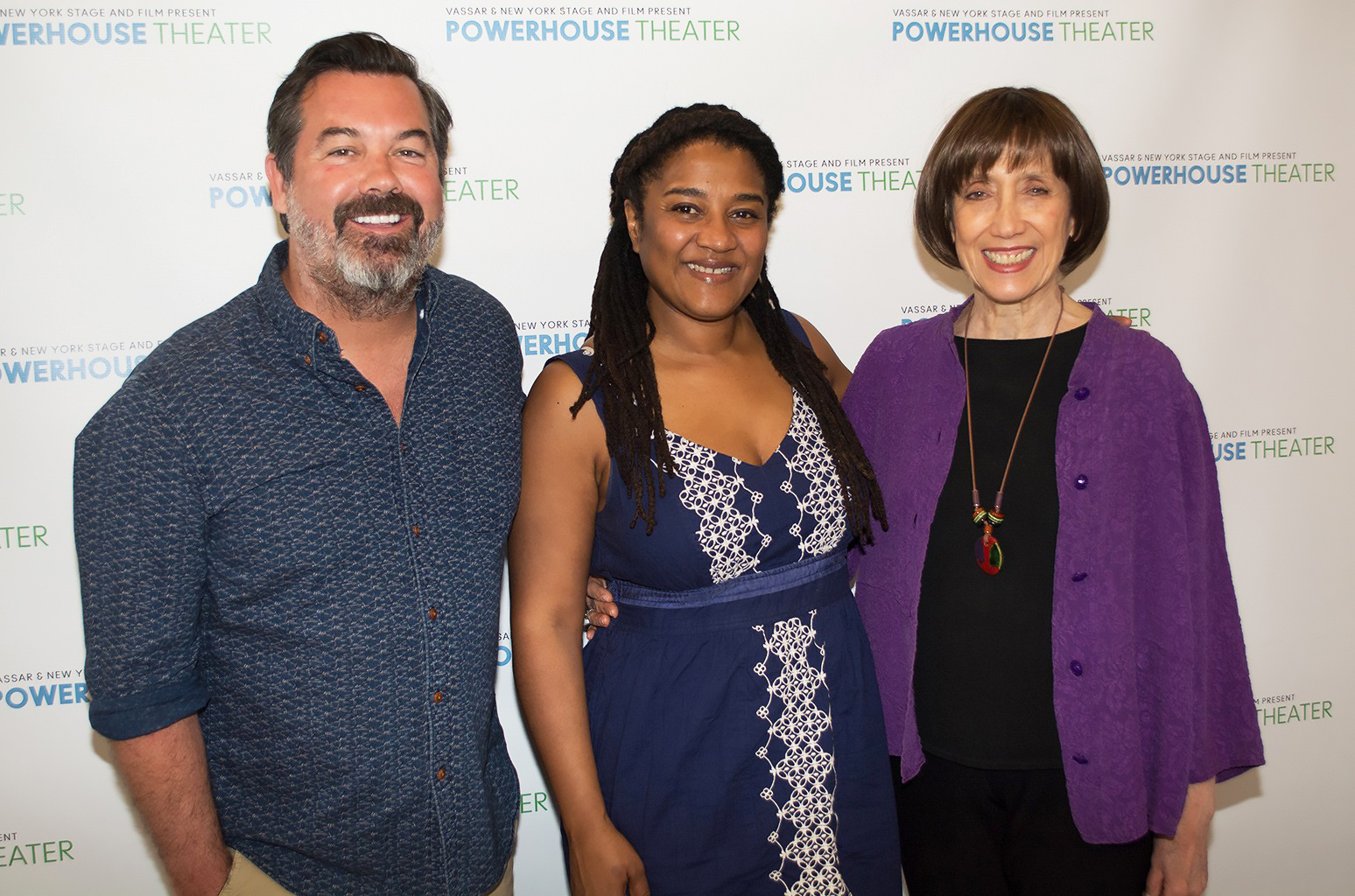
Perhaps you could tell us a little of the story of the play. What’s it about?
Lynn Nottage: Sweat revolves around a close-knit group of friends who work in a steel factory in Reading, Pennsylvania, and it kind of tracks that friendship over the course of the year, from where they’re celebrating their prosperity to discovering that they’re going to be locked out of their plant. And it really explores the way in which that friendship fractures across racial lines.
The alienation among steelworkers and others in the middle of the country is hard for people on the coasts to even fathom, isn’t it?
Lynn Nottage: It was heartbreaking for me to sit in circles with steelworkers who had worked in factories — in some cases for 40 years, the same factory. They had assumed that they would retire and have these enormous pension plans and that their sons and daughters would then move into these jobs, realizing that not only would they never be able to access their pension plans and access their factories again, but that that opportunity was gone for the next generation.
I remember sitting in this circle of middle-age white men, you know, this black woman, and I’m asking them questions and seeing them not just cry but weep, weep out of frustration, also weeping because they literally didn’t know what to do next. And what was surprising is because for so long — and forgive me for using this language — but for so long I think that these particular men saw their opportunity — their whiteness — as a superpower, and that as long as they were white men, they’d always have opportunity.
And I think when that opportunity was taken away from them, they became profoundly confused. It’s like, “Wait a minute. What do we do? Who are we?” And I watched when I was sitting in the circle as these men were grappling with a sense of identity — of their identity. It’s like, “Who are we if not this?” and I found that fascinating.
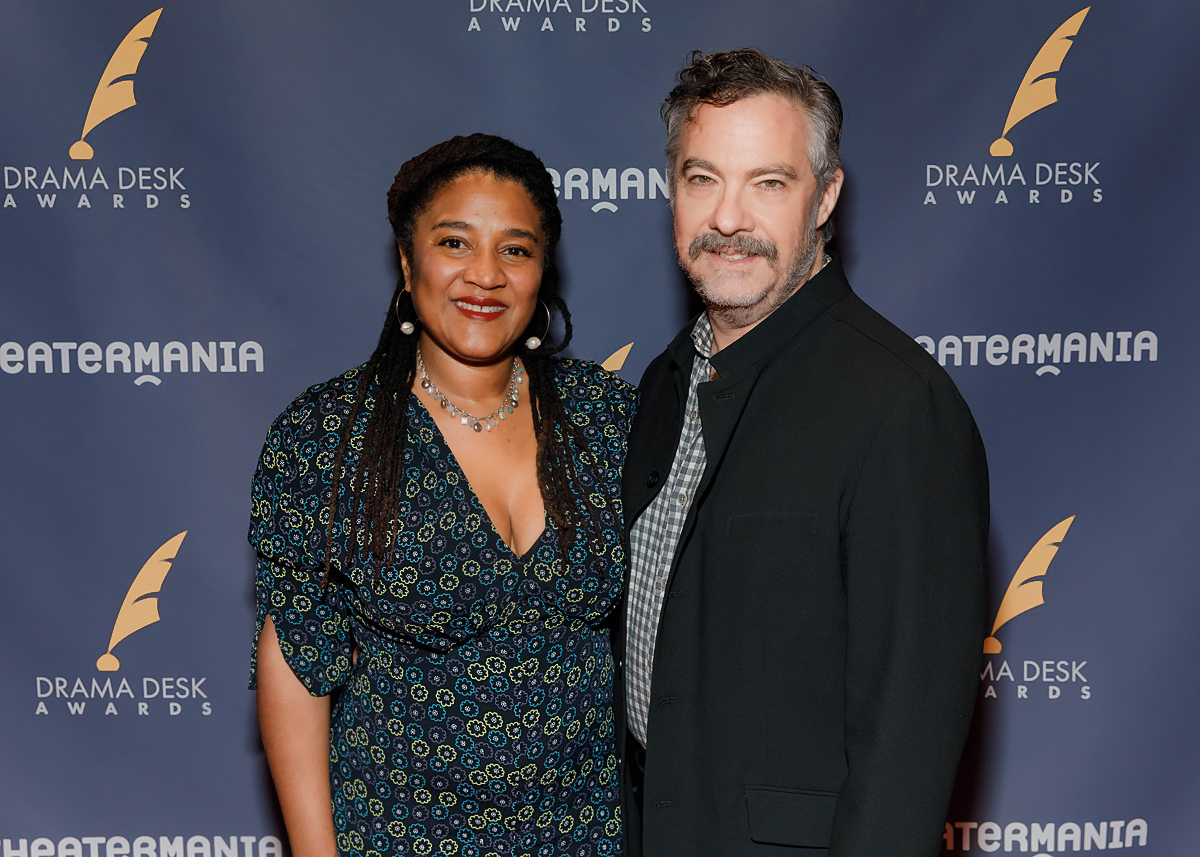
Not only have they lost their identity as workers, but they can’t support their families.
Lynn Nottage: They can’t support their families. They can’t pay their mortgages. When I was talking to one of the locked-out steelworkers, he was describing not being able to do the things that he had taken for granted, like going to see a movie. He thought, “I may never be able to go to a movie theater again because I don’t have that disposable income.” And just the notion of that was quite devastating.
You’ve delved into different media — TV, film — and different ways of bringing theater to people. With Sweat you went out into the community.
Lynn Nottage: When we were initially conceiving of Sweat, myself and my collaborator Kate Whoriskey, we always wanted to figure out a way not only to bring the play back to the people in Reading, Pennsylvania, but to take it to folks who might be very much in dialogue with the issues that were happening on the stage. So we, along with Oregon Shakespeare Festival, raised some money from the very inception to take the play outside of the proscenium and take it into communities.
When we moved the show to the Public Theater, we deliberately selected that theater because the artistic director, Oskar Eustis, was very aligned with what we wanted to do with the show. We had originally planned to take it to Reading, Pennsylvania and then tour it through the prison system, but the prison system would not let us in.
So after we took it to Reading, we wanted to figure out a way to keep what we experienced with that audience in Reading, Pennsylvania alive, and we came up with this notion of touring Sweat through the Rust Belt, specifically in small towns that were swing towns and voted for Obama and then voted for Trump. We wanted to go to places where we thought we could have a dialogue. We didn’t want to just go red or blue; we wanted to go to purple, those places where, we thought, after the play is done we can actually talk about some of these issues.

How did that go?
Lynn Nottage: The tour of the Rust Belt with Sweat was phenomenal. It really exceeded our expectations, and I think in large part due to a lot of the excellent work that the Public did to prepare people for what they were going to see. And you talk about the way in which you invite audiences across a threshold is that the Public Theater’s advance team spent a lot of time figuring out, “How do we get people who’ve never seen theater to enter into a space and sit for two‑and‑a-half hours and watch a play?”
When I got there, I anticipated that there’d be a lot of cellphones ringing, that people would be restless, but by and large those audiences sat quiet and rapt and at the end of the play really wanted to engage in robust conversation. You know, I describe it like, almost like a traveling tent show in which the play is the sermon and the people afterwards would stand up and testify. Sometimes we had to turn out the lights to get people to stop talking, but we recognized that there was a real need to talk about what the folks in the Rust Belt were going through.

